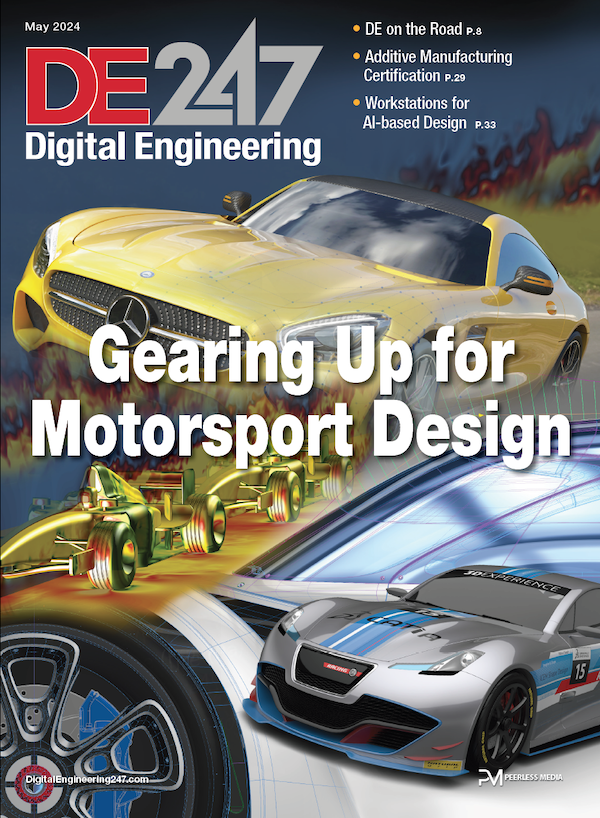
The Edgar is Local Motors’ work-in-progress mini bus concept. Image Courtesy of Local Motors
Latest News
April 27, 2016
Local Motors, once lauded by President Obama as the manufacturing model of the future, is evolving its partnership with Siemens PLM Software. Local Motors is expanding use of Siemens PLM Software products and collaborating more closely to advance support for advanced 3D printing.
Local Motors, which champions open design communities and a co-creation approach to vehicle design, adopted Siemens’ Solid Edge CAD software for its first Open Electric Vehicle project way back in 2011. In particular, Siemens’ synchronous technology enabled Local Motors’ community of global design contributors, many using different CAD and design tools, to collaborate more effectively by enabling the seamless import of non-native CAD models directly into Solid Edge.
Now Local Motors plans to expand use of Solid Edge while broadening out to take full advantage of Siemens’ NX CAD and simulation suite, the digital twin concept, and the Fibersim software platform for composite design and simulation. Siemens will also work closely with Local Motors to optimize its CAD, simulation and PLM design platforms for large-scale 3D printing, according to Siemens officials.
Local Motors’ growing expertise in developing a 3D printing production process for vehicles, something it calls direct digital manufacturing (DDM), and Siemens’ evolving work with digital twins, the concept of creating a virtual model that accurately represents the form, function and behavior of a product and its production, sync up in a shared vision of applying digital technologies to product design and production. The marriage of the two disciplines drives efficiencies throughout design and manufacturing, saving time, reducing costs and increasing quality, the companies said.
The high-fidelity digital twins let engineers test the functionality of products and the corresponding manufacturing processes in the virtual world, enabling them to optimize designs and performance without building dozens of costly physical prototypes. DDM’s role is to produce the optimized virtual prototypes quickly, eliminating the need for costly tooling and removing any time lags between design and production.
“As Local Motors pushes to shorten vehicle development times and keep tooling costs as low as possible, it’s increasingly important to simulate all aspects of the vehicle throughout the development process,” explained Matt Jackson, a Local Motors mechanical engineer. “That means there is less individual system prototyping and higher levels of confidence in prototype vehicles.” In particular, Jackson said Siemens’ latest simulation tools enable Local Motors to more accurately predict the characteristics of 3D printed structures, which is historically a very difficult thing to do because of the anisotropic nature of Fused Deposition Modeling (FDM) like 3D printing methods.
 The LM3D Swim and Strati are among the 3D printed cars to be available from Local Motors starting next year. Image Courtesy of Local Motors
The LM3D Swim and Strati are among the 3D printed cars to be available from Local Motors starting next year. Image Courtesy of Local MotorsAs part of their partnership, the Siemens PLM software will also be made readily available in Local Motors’ microfactories as they come on board in the coming years. Each microfactory, one currently in Phoenix and another to open shortly in Knoxville, TN, along with a sales and demonstration center slated to open outside of Washington, DC, all will include LM Labs, a lab space open to the public for working on Local Motors and other engineering projects. Siemens PLM Software will be a sponsor of LM Labs and its software will be made available for public use at those facilities.
“By doing so, we are providing very advanced software that’s generally not available to the public and making it accessible to use and work on projects,” said Adam Kress, Local Motors’ director of public relations and content.
Local Motors’ LM3D Swim is the first of many slated vehicle designs that will be 3D printed. Making its original debut late last year, the initial LM3D Swim will be the first vehicle to have its full body assembly produced with 3D printing technologies. The 3D printed electric car prototype is currently going through testing to get highway certified, and the company expects it to be cleared by early 2017.
Check out this video to see Local Motors’ 3D printing technology in action on the Strati, a 3D printed car.
Subscribe to our FREE magazine, FREE email newsletters or both!
Latest News
About the Author
Beth Stackpole is a contributing editor to Digital Engineering. Send e-mail about this article to [email protected].
Follow DE






